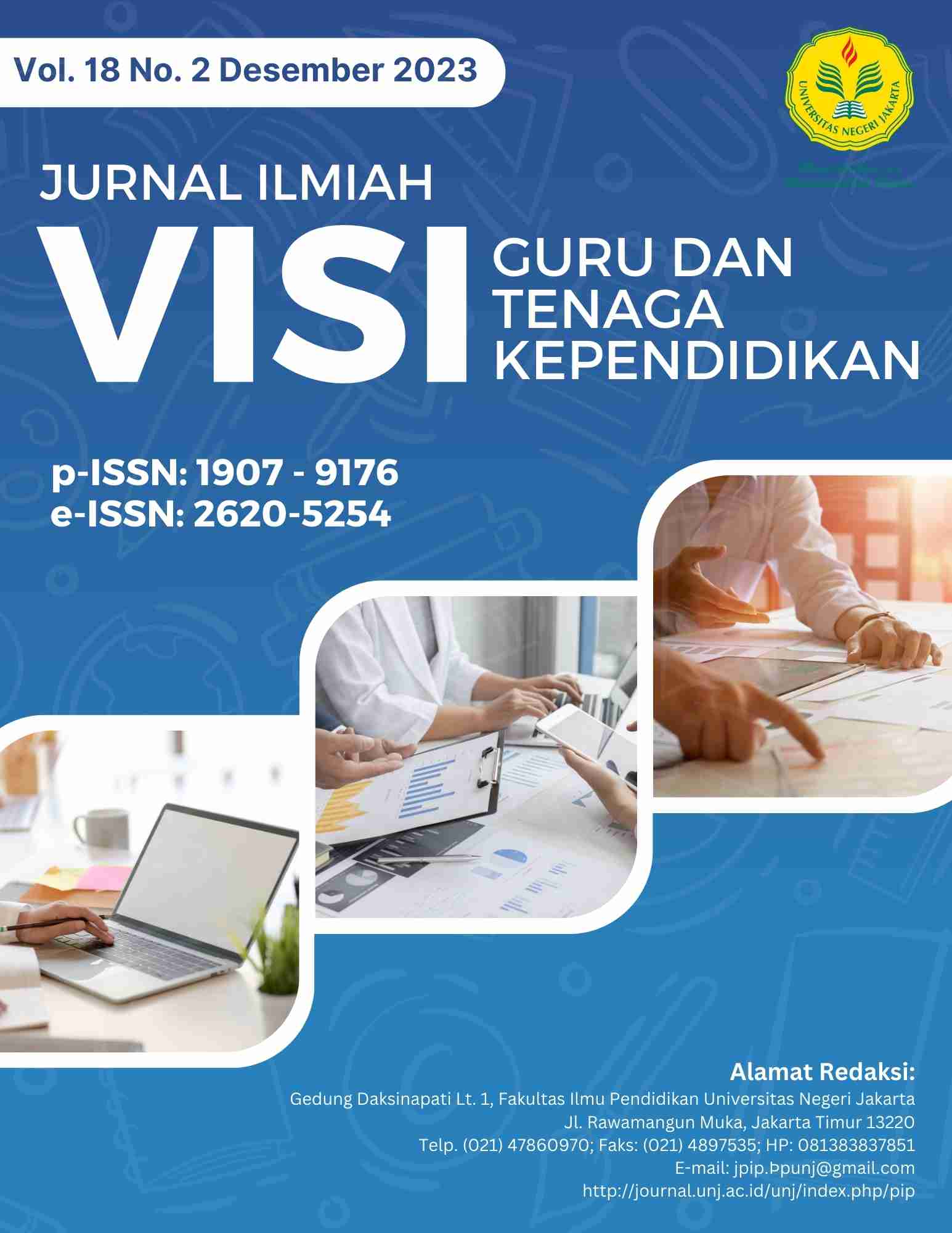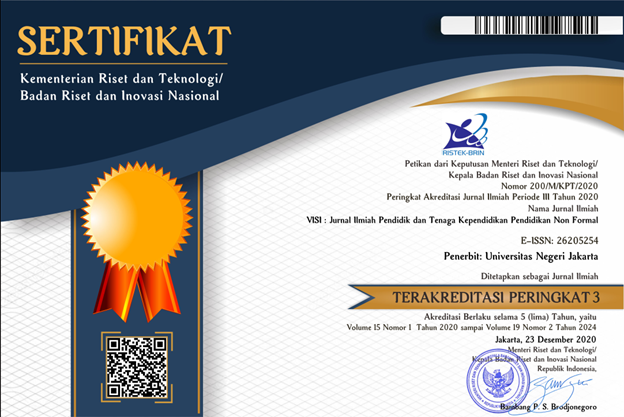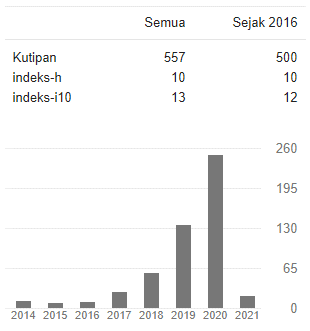An Analysis of Inclusiveness in Teaching Citizenship Education (Civic Education) in Primary Schools: A Case Study of Curriculum Implementation and Inclusive Practices
DOI:
https://doi.org/10.21009/JIV.1802.9Keywords:
Civic Education, Inclusive curriculum, Inclusice practicesAbstract
This research aims to analyze inclusivity in the teaching of Civic Education (PKn) in elementary schools, with a focus on the implementation of inclusive curriculum and practices. This research uses a case study approach to understand inclusivity in the context of Citizenship Education in elementary schools. The aim of this research is to analyze inclusivity in Civics teaching in elementary schools through case studies of the implementation of inclusive curriculum and practices and understand the extent to which inclusivity is implemented in the Civics teaching curriculum and practices in elementary schools. This research is a case study research with a qualitative approach to gain an in-depth understanding of inclusivity in Civics teaching in elementary schools. This approach will allow researchers to explore the perceptions, experiences, and practices in a more holistic context. Data collection uses observation, interviews, and documentation. The research subjects were principals, teachers, and students at SDN Pakel, SDN Wirosaban and SDN Giwangan. The data analysis technique uses data triangulation. The results of this research reveal variations in the implementation of Civics inclusiveness in elementary schools. Factors such as teacher understanding, available resources, and school support play an important role in achieving inclusivity. SDN Giwangan shows a strong commitment to inclusivity by providing additional support for students who need it, while SDN Pakel and SDN Wirosaban still face obstacles in creating a truly inclusive learning environment. This research provides insight into the challenges and opportunities in realizing inclusivity in citizenship education and provides a basis for further improvements in efforts to create a more inclusive learning environment for all students.
Downloads
Published
How to Cite
Issue
Section
License
Authors who publish with this Journal agree to the following terms:
- Author retain copyright and grant the journal right of first publication with the work simultaneously licensed under a creative commons attribution licensethat allow others to share the work within an acknowledgement of the work’s authorship and initial publication of this journal.
- Authors are able to enter into separate, additional contractual arrangementfor the non-exclusive distribution of the journal’s published version of the work (e.g. acknowledgement of its initial publication in this journal).
- Authors are permitted and encouraged to post their work online(e.g. in institutional repositories or on their websites) prior to and during the submission process, as it can lead to productive exchanges, as well as earlier and greater citation of published works.
- Users/public use of this website will be licensed to CC BY-NC-SA Creative Commons Attribution-NonCommercial-ShareAlike 4.0 International License









